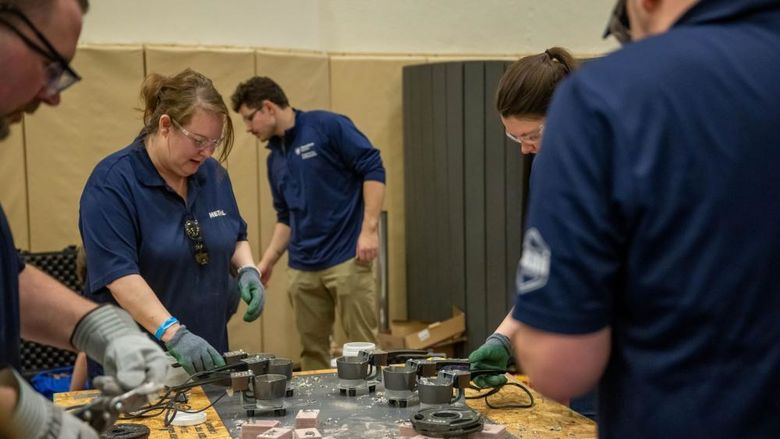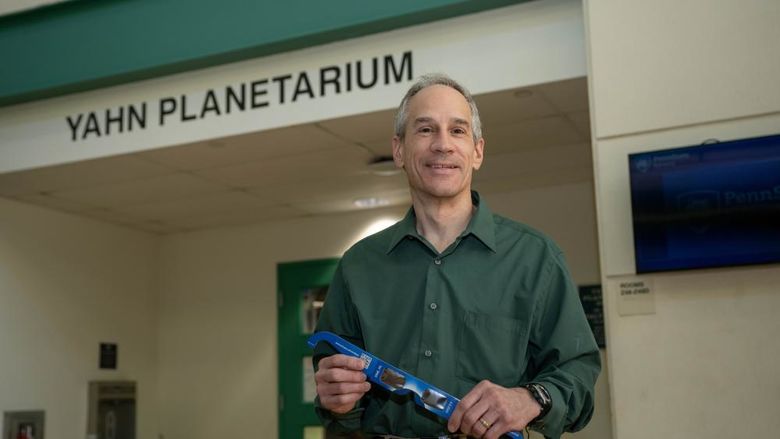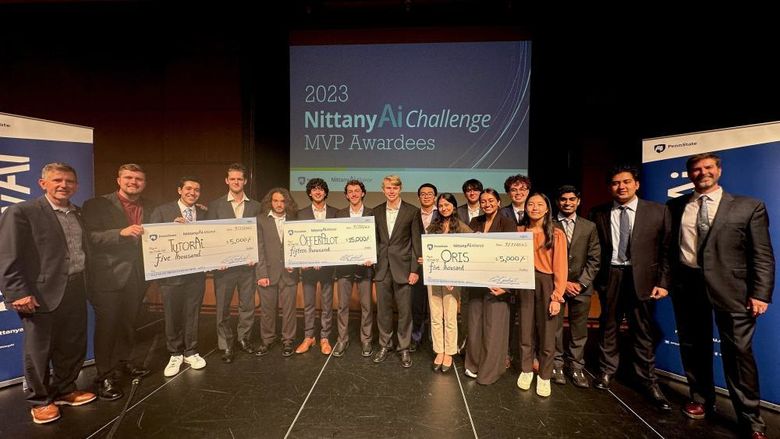
Penn State Behrend has been awarded $2.5 million in federal funding to develop a battery-testing facility in the college’s Knowledge Park, where a planned Center for Manufacturing Competitiveness will support the transition to battery-powered heavy-haul equipment in the rail, marine and mining industries.
ERIE, Pa. — Penn State Behrend has been awarded $2.5 million in federal funding to develop a battery-testing facility in the college’s Knowledge Park, where a planned Center for Manufacturing Competitiveness will support the transition to battery-powered heavy-haul equipment in the rail, marine and mining industries.
U.S. Sen. John Fetterman helped secure the funding, which was included in a consolidated appropriations bill that was signed into law on March 23.
“I was proud to help secure these federal dollars for Penn State Behrend,” Fetterman said. “This funding will mean researchers can continue paving the way for a cleaner future in Pennsylvania’s maritime, mining and heavy rail industries. These types of projects and investments in scientific research are key to finding both the possibilities — and limits — of clean energy technology.”
The funds will be used to equip a test rig where researchers and industry partners can study a condition known as thermal runaway — a chain-reaction that can occur when the temperature in lithium-ion batteries exceeds the normal operating range. The rig will include a thermal chamber that can simulate a wide range of temperatures, from 80 degrees Celsius to -40 degrees Celsius.
“This project exemplifies Penn State’s land-grant mission of education, research and service to Pennsylvanians,” said Ralph Ford, chancellor and dean of Penn State Behrend and professor of electrical and computer engineering. “The funding secured by Sen. Fetterman will equip Penn State Behrend with testing capabilities that advance innovation in long- and heavy-haul electric transportation, while facilitating research and development for industry applications, and educating engineers to meet the region’s workforce needs. Penn State Behrend is grateful for Senator Fetterman’s support and leadership.”
As part of Behrend’s Open Lab environment, the rig will be available to industry partners at Wabtec, Komatsu, Caterpillar and other companies. Engineers at Wabtec helped select some of the equipment that is being considered for the rig, which will be a resource for the company’s Erie workforce.
“Economic development initiatives are most effective when they blend university, government and industry resources,” said Amy Bridger, assistant dean for innovation and corporate strategy at the college. “This is an example of how that can work, with the benefit extending beyond the original partners.”
At Wabtec, where engineers are developing the world’s first fully battery-powered locomotive, access to an advanced rig with string- and pack-level testing could accelerate the transition to battery technology by several months.
The rig also will advance Project RESOLVE, a 10-year regional effort to shift the transportation, metal-casting and plastics industries to a circular economic model. The initiative, which includes the planned Center for Manufacturing Competitiveness, will support manufacturers as they invest in their own operations and transition to sustainable technologies that ultimately will reduce pollution in and near the region’s freshwater resources, including Lake Erie.
The use of battery packs in hybrid locomotives can reduce fuel consumption and emissions by up to 30%. A fully battery-powered locomotive would further reduce emissions of carbon dioxide and nitrogen oxides.
“With our history of university-industry engagement, Penn State Behrend is uniquely positioned to support and advance that technology,” Bridger said. “Our work with businesses in Knowledge Park, producing research with industry partners in our Open Lab, and providing workforce development training has created a culture of impact that is driven by our land-grant mission. That collaborative approach is central to Project RESOLVE,” Bridger said. “By investing in and supporting the future of these companies and their employees, we can improve the economy, the environment and the overall quality of life in the Erie region.”
Robb Frederick
Director of Strategic Communications, Penn State Behrend





